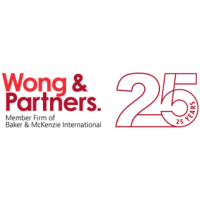

General counsel, company secretary | Maybank




Wan Marzimin
General counsel, company secretary | Maybank
What are the most significant cases or transactions that your legal team has recently been involved in?
I would say the two most significant projects we have been involved in recently, and are still working on, are firstly, dealing with the discontinuation of LIBOR and reference rate reform; and secondly, incorporating ESG into what we do. The cessation of LIBOR requires us to look at all the related loans we have, plan for the transition and ultimately execute the related agreements to reflect the new reference rate. Managing this as a whole group, covering different jurisdictions with different referral rates, is quite challenging. Regarding ESG, we are guided by the ESG policy and framework implemented by the bank. We are working with business teams to facilitate our clients to the next level – the key word being transition.
Could you share an example of a time when you came up with an innovation that improved how your legal team works and did not come at a large expense?
We currently have a platform to share issues and discuss solutions. We have quite a large team within the Maybank Group and having a platform where we can easily share our projects and updates has helped us tremendously. Although we cannot provide all the information via the platform, it is enough to trigger a discussion between our teams which they can take offline if necessary. The idea is to let the team know that we have a wealth of knowledge and experience among team members across the region, and to provide opportunities to interact with each other.
What are some of your main tips for dealing with a crisis?
It is important to keep calm and listen.
How do you see the general counsel role evolving in Malaysia over the next five-ten years?
I think that corporate governance and integrity will become more and more prominent, I am referring to the “G” in ESG here. This is especially true for regulated industries such as banking. As a listed financial institution, we are regulated by stock exchanges and central banks. The two regulators have somewhat differing rules; therefore, we have various disclosure standards to adhere to. However, we cannot simply meet the minimum standards set, as our investors may demand greater transparency in everything we do. We see more and more local institutional investors sharing their expectations, over ROI, with investee companies. In other parts of the world, we see shareholder activism influencing decisions made by boards of directors and we need to track and be aware of these developments. So, the general counsel needs to follow relevant rules and regulations, as well as meet shareholder expectations regarding corporate governance, in addition to industry-specific knowledge.
How important is choosing to work with external lawyers who align with your company’s values? Are you likely to reconsider what firms you work with based on this?
Definitely, the alignment of values is very important because who we deal with reflects who we are. We conduct periodic reviews of our panel law firms and when we see they are not aligned, we will suspend or remove them from our panel. For example, we have started asking our partners, the external law firms, what their ESG conduct is like. This is partly to let them know that we care about this issue and partly to learn from them.
What are some of the main trends in the industry sector you work in in Malaysia?
I believe some of the main trends in the industry currently are the digitalisation of finance and digital banking, however with this, comes the issues surrounding data security and online fraud. Another main trend is, of course, ESG such as green finance.
Have you used AI in your day-to-day work? If so, how useful do you find it?
Not really, AI such as Chat GPT can be helpful, but it is not an adequate substitute for old fashioned legal research I’m afraid.
General counsel and company secretary | Maybank
General counsel, company secretary | Maybank